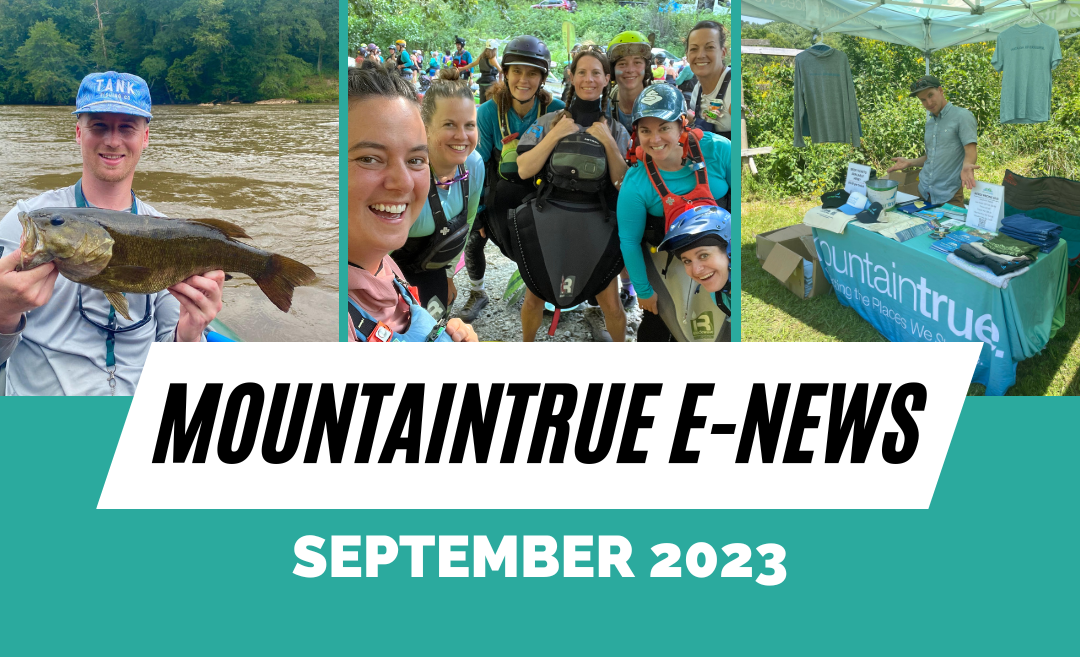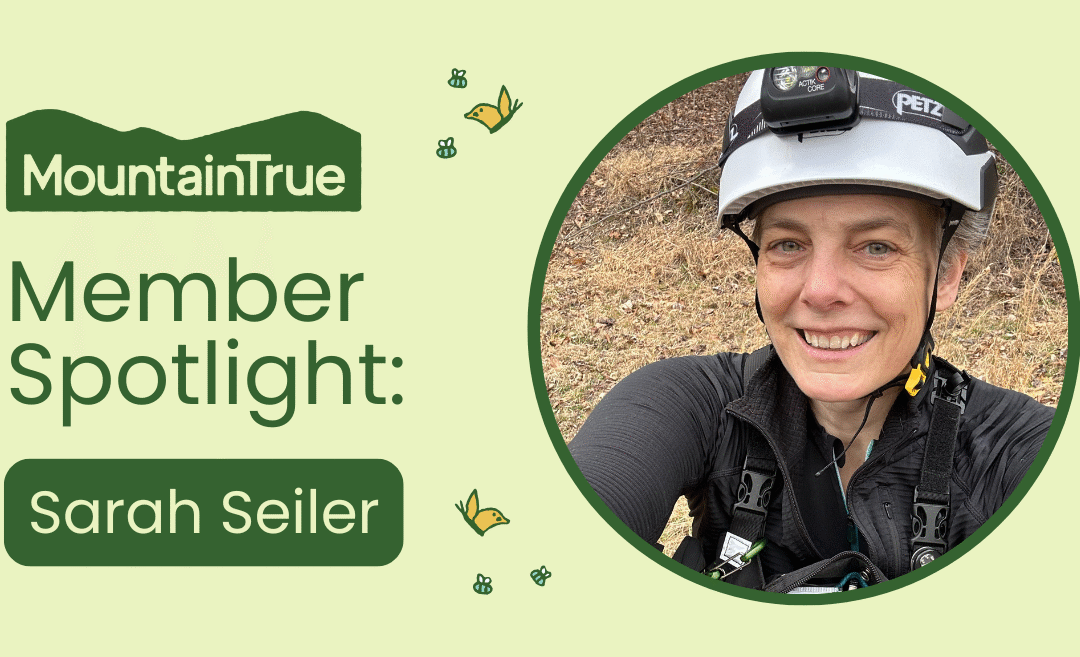 Heritage apple trees are a tasty reminder of American history.
Heritage apple trees are a tasty reminder of American history.
In many parts of the country, a parcel of land wasn’t considered occupied until there were several fruiting apple trees on it.
This year’s heritage apple tree sale includes some of the oldest known apples in North America including some – Dula Beauty, King Luscious and Magnum Bonum – that originated in North Carolina.
This year’s sale includes more than 25 varieties of apple trees as well as native blueberries and elderberries, figs, American hazelnuts and hybrid chestnuts. Growing trees in your own backyard is the perfect way to remember our history and enjoy the fruits of your gardening labor while supporting environmental efforts to protect our mountains.
Fruit trees can be ordered now and will likely run out before the pickup dates of Feb. 13-14.
To see a full list of available varieties and to place a pre-order, CLICK HERE.
For questions or support in ordering contact Rebecca: rebecca@mountaintrue.org, 828-692-0385 ext: 1003
All pre-ordered trees must be picked up at our Hendersonville office, located at 611 North Church St., #101, on Friday, Feb. 13 (4-7 p.m.) and Saturday, Feb. 14 (9 a.m. to noon).
Unclaimed trees will be sold at noon on a first-come, first-served basis.
Also, Useful Plants Nursery, a local permaculture nursery specializing in edible and medicinal plants, will bring a variety of interesting plants for purchase on pick-up days.
To request a specific plant for your landscape, you may contact the nursery at www.usefulplants.org before Feb. 6. A portion of their sale proceeds will go to support our work in Henderson County.
NOTE: DUE TO WEBSITE CHALLENGES AFFECTING OUR REGISTRATION PROCESS, WE HAVE POSTPONED THE COURSE TWO WEEKS. The new registration due date is WED. JAN. 28, and the new dates for the course are THURS. FEB. 5 – MARCH 19.
It’s time for MountainTrue’s annual NWEI discussion course! Join us this winter for Seeing Systems: Peace, Justice & Sustainability to address the connections between three of society’s most pressing challenges, and become equipped to promote peace, justice and sustainability within our community.
Participants read each week’s material (which may include brief articles, book excerpts and/or links to online content) on their own. During each session, group members take turns facilitating by leading others through discussion questions provided in the course book.

PARTICIPANTS IN THIS SEVEN-SESSION DISCUSSION COURSE WILL:
• Be introduced to values, visions, and practical actions they can take toward a more peaceful, just and sustainable world.
• Become aware of entrenched values and assumptions that reinforce destructive practices and unhealthy systems.
We will meet every Thursday for seven weeks, Feb. 5 – March 19, from 6-7:30 p.m. at the Battery Park Book Exchange & Champagne Bar.
Registration cost is $45 for MountainTrue members, and $60 for non-members (includes one-year MountainTrue membership!). Your books are included, and will be distributed during the first meeting.
To view the full reading list, click here.
The registration deadline is Wednesday, Jan. 28.
Please Register & Pay HERE

Contacts:
Melissa Troutman, melissa@publicherald.org, 724-388-0464
Katie Hicks, Katie@cwfnc.org, 828-251-1291
Julie Mayfield, Julie@WNCA.org, 828-258-8737
Cross-Country Tour of Fracking Investigation to Use Zero Gasoline
Investigative News Team Screening ‘Triple Divide’ Across U.S.

What do fracking and the car of the future have in common? Residents of the Tar Heel State have the chance to find out at several screenings ofTriple Divide, a documentary about fracking in the Marcellus Shale.
Triple Divide is an 18-month investigation by independent journalists Joshua Pribanic and Melissa Troutman, who also co-founded the nonprofit Public Herald based in Pennsylvania.
“Triple Divide is about how water and energy connect us all,” Troutman said. 
“It’s a great time for Western North Carolina residents to learn about the impacts of fracking in other parts of the eastern U.S.,” said Katie Hicks, assistant director of Clean Water for North Carolina, a co-sponsor of the screening in Asheville. “The NC General Assembly just lifted the moratorium on permits for drillers in our state, so permitting could begin as soon as the NC rules are finalized, and hearings on those rules are coming up in August. Plus, the state has budgeted money to test parts of nine counties in Western North Carolina for shale gas potential, so there’s a chance folks in the mountains could be directly impacted.”
“Having the filmmakers here in Asheville is a great opportunity to enhance our community’s dialogue about the risks of fracking in our state,” added Anna Jane Joyner, campaign coordinator at the Western North Carolina Alliance, also a co-sponsor.
An investigation of impacts from fracking in Pennsylvania, Triple Divide has been called “a bombshell that could reverberate across the state.” It will tour across the country June thru November thanks to a grant from the Investigative News Network with support from the Knight Foundation.
The team will cover over 10,000 miles in a Tesla Motors Model S, a long-range, all-electric sedan, and use the company’s nationwide Supercharger system where the electric cars can be quickly recharged for free. The directors aim to cross the U.S. using zero gasoline and emitting zero greenhouse gas pollution.
It screens July 30 at 7 p.m. at Mad Batter in Sylva, and July 31 at 7 p.m. at the Fine Arts Theatre in downtown Asheville, hosted by Clean Water for North Carolina and Western North Carolina Alliance.
According to Pribanic and Troutman, who also co-founded the investigative news nonprofit Public Herald, Triple Divide reveals how one state’s “world-class regulations” fail to protect people, communities, and the environment.
“The public isn’t seeing the full scale of impacts from fracking either because regulators are mismanaging the data or decisions are made based on politics instead of science,” Pribanic said. “The impacts we encountered in Triple Divide are systemic, but we can learn from these experiences so that the stories of those interviewed are not in vain.”
The journalists aim to bring together people on any side of the issue to discuss solutions, such as the #Fileroom project which Public Herald began to help the public track human and environmental health complaints by digitizing and mapping hard-to-get government oil and gas files.
“Pennsylvania has some of the best environmental laws in the country, but they aren’t being enforced,” Troutman said. “And major problems like the ‘Pressure Bulb’ effect from fracking, which we cover in Triple Divide, aren’t a part of state or federal regulations at all.”
Academy Award-nominated actor Mark Ruffalo co-narrates the documentary and added his voice to the project after seeing the film just weeks before its release. Ruffalo’s nonprofit, Water Defense, also investigates water testing and protection measures, and he is a co-founder of The Solutions Project.
Public Herald also seeks solutions to increase its sustainability, which is why the team chose Tesla Motors for its transportation. “Imagine crossing the country without using a single drop of gasoline,” Troutman said. “Tesla’s model may be a way to lessen the impact of fossil fuels on society and the climate. We’ll share our review of the experience online, and those who attend screenings will get to check out the car in person.”
Triple Divide’s namesake, the triple continental divide in Pennsylvania, is one of four highly unique watersheds in North America. It’s where three major rivers begin and flow to separate ends of the continent, providing drinking water for millions of people and hundreds of communities downstream.
The filmmakers have screenings in West Virginia, Virginia, North Carolina, New Mexico, Nevada, California, Montana, and Michigan with stops in between. For a detailed list of screening times and locations, visit http://tripledividefilm.org/screenings. For video clips see TripleDivideFilm.org. Also follow @PublicHerald and #TripleDivide.
● http://vimeo.com/ondemand/tripledivide/63571188
● Reviews: http://tripledividefilm.org/about/reviews/
● Photographs and stills from the film: http://flic.kr/s/aHsjE3Tb8F
 Heritage apple trees are a tasty reminder of American history.
Heritage apple trees are a tasty reminder of American history. 


